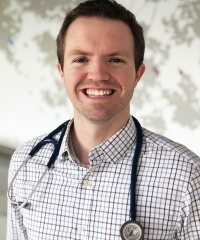
Article at a Glance
Human Papillomavirus, or HPV, is an infection that often does not show any symptoms. The CDC estimates the majority of adults will get HPV at some point in their lifetime. While most cases of HPV will eventually clear up on their own, lasting infections can lead to certain types of cancer or genital warts. Currently, there is no way to tell which infections will lead to cancer or warts and which ones will not.
Fortunately, there is a safe and effective vaccine that helps prevent HPV infections. For the best protection, the vaccine should be administered between the ages of 9 and 12 for both boys and girls. While adolescents and young adults up to age 26 are still encouraged to get the vaccine, they may have already been exposed. Older adults should consult their physician about whether they should be vaccinated. The vaccine may have little to no effect on people with HPV. Vaccination prior to exposure offers the best protection against HPV and future risks of cancer. The vaccine is administered in two doses (three doses for people 15 to 45 years old) and in most cases is covered by insurance with no cost to the patient. If cost is an issue, area health departments may have information on where to obtain the vaccine for low or no cost.
The short answer is yes. The American Cancer Society estimates that 13,800 women will be diagnosed with cervical cancer in 2020. Of those, an estimated 4,290 women will die. While the cancer risks are generally lower for men, an estimated 2,200 men will be diagnosed with penile cancer, with an estimated 440 deaths. Receiving the vaccination greatly reduces the chance of developing these types of cancer. So by boys getting it they are not only protecting themselves, but others in the future.
Early vaccination not only offers better protection from HPV, but children up to 14 years need one less dose than older teens and adults so there are fewer visits needed.
Women who are pregnant or breastfeeding, people with moderate to severe illnesses, and people with an allergy to the vaccination, or to ingredients in the vaccination, should not get the HPV vaccine.
Common side effects may include:
Cancer from HPV can be prevented with vaccination. Contact your child’s pediatrician if you have specific questions about the HPV vaccine or to schedule a vaccination appointment.

Dr. Allen enjoys trivia, sports, and caring for his four kids. He’s passionate about children’s physical and mental health and has personal experience with parenting multiples.